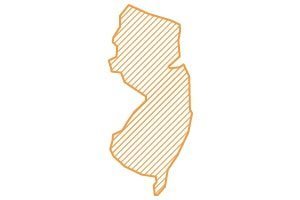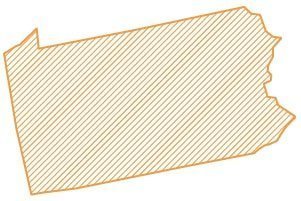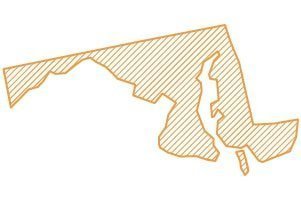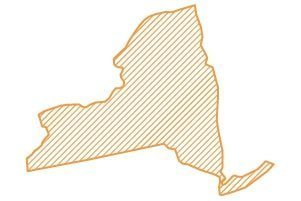Marriage and family therapy (MFT) is a growing field, and there is a high demand for qualified MFTs in Delaware. If you are interested in a career as an MFT, Delaware is a great place to start. Marriage and Family therapists help individuals and families heal their relationships. MFTs are trained to recognize and treat any mental health disorders that could be contributing to unhealthy patterns in a person’s relationships.
The first step to becoming an MFT in Delaware is to earn a Master’s degree in Marriage and Family Therapy from an accredited program. COAMFTE is the Commission on Accreditation for Marriage and Family Therapy Education, and it is the highest national accrediting body for MFT programs. You can also find CACREP accredited programs. These are programs certified by the Council for Accreditation of Counseling and Related Educational Programs.
Once you have earned your Master’s degree, you must complete 3,200 hours of post-master’s supervised clinical experience. This experience must be in a setting that provides direct clinical services to individuals, couples, and families.
Your supervisor must be a licensed MFT or a licensed psychologist. You must also receive 1,600 hours of direct supervision from your supervisor.
Finally, you must pass the AMTRB exam. The AMTRB exam is the Association of Marital and Family Therapy Regulatory Boards exam. It is a national exam that all LMFTs must pass in order to be licensed.
The process of becoming an MFT in Delaware can be challenging, but it is also rewarding. If you are passionate about helping families, MFT is a great career choice.
In this article, we will discuss the steps involved in becoming an MFT in Delaware. We will also provide information on the requirements for licensure, the average salary for LMFTs in Delaware, and the different career paths that are available to LMFTs.
We hope this article will help you on your journey to becoming an MFT in Delaware!
Online MFT Program in Delaware
Many graduate students choose to complete their studies in an online program to save time and money. Also, online programs give students the freedom to complete their coursework according to their schedule and in the comfort of their home. This flexibility will allow you to continue to work at a job while completing your graduate degree in Marriage and Family Therapy. You will also save money by eliminating the cost of commuting back and forth to school.
One college in Delaware offers a partial online program:
- Wilmington University
- Master of Arts in Clinical Mental Health Counseling
- This program is accredited by the Council for Accreditation of Counseling and Related Educational Programs (CACREP) and is offered with some online courses and some in-person classes.
Accredited MFT Programs in Delaware
Delaware COAMFTE Accredited MFT Programs
COAMFTE is the Commission on Accreditation for Marriage and Family Therapy Education. It is a national accrediting body for marriage and family therapy programs. The programs that COAMFTE accredits meet high standards of quality and are recognized by state and national professional organizations.
There are no COAMFTE-accredited programs in Delaware. However, there are several COAMFTE-accredited programs in neighboring states that are accessible to Delaware residents. These programs include:
- University of Maryland, College Park :
- COAMFTE accredited program
- Masters in Couple and Family Therapy
- Non-Thesis option: 48 credits, Thesis option : 51 credits
- Drexel University
- Master of Family Therapy
- COAMFTE accredited program
- Full-time, two-year program that provides 900 hours of direct clinical experience.
The University of Delaware does not have a Master’s degree program in Marriage and Family Therapy. However, they do have a partnership with Thomas Jefferson University that allows students to earn a Master’s degree in Couple and Family Therapy from TJU after completing their undergraduate degree at UD.
Here are the requirements for the partnership program:
- Undergraduate Degree: Students must complete a Bachelor’s degree in Human Services from UD with an overall GPA of 3.25.
- Prerequisite Courses: Students must complete the following prerequisite courses at UD:
- Abnormal Psychology
- Human Growth and Development
- Family Systems
- Assessment and Intervention in Human Services
- Master’s Degree Program: Students will complete the Master’s degree program at TJU. The program is a full-time, two-year program that provides 500 hours of direct clinical experience.
The Master of Family Therapy Degree is offered by our Couple and Family Therapy (CFT) Program. The CFT Program is a unique collaborative effort between two highly-respected institutions: Thomas Jefferson University and Council for Relationships. This is a full-time, two-year, 66-credit program, which is modeled on the core curriculum developed by the Commission on Accreditation for Marriage and Family Therapy Education (COAMFTE), focusing on key areas of contemporary practice, including:
- Couple and marital counseling
- Family therapy with children
- Families in transition (divorce and remarriage)
- Family violence
- Medical family therapy
- Sex therapy
If you are interested in pursuing a Master’s degree in Marriage and Family Therapy, I recommend that you contact the Human Development and Family Sciences department at the University of Delaware to learn more about the partnership program with Thomas Jefferson University.
CACREP Accredited Marriage and Family Therapy Programs in Delaware
CACREP is another accreditation for Marriage and Family Therapy programs. CACREP stands for the Council for Accreditation of Counseling and Related Educational Programs. It is a non-profit, non-governmental organization that accredits counseling programs in the United States and Canada. CACREP accreditation is voluntary, but many state and national professional organizations recognize it.
CACREP standards are designed to ensure that counseling programs are of high quality and that their graduates are prepared to practice counseling in a competent and ethical manner. The standards cover many areas, including curriculum, faculty qualifications, clinical experiences, and assessment procedures.
To be accredited by CACREP, a program must undergo a rigorous review process. The review process includes the following:
- A self-study.
- An on-site visit.
- A final decision by the CACREP Board of Directors.
CACREP accreditation is a valuable asset for counseling programs. It demonstrates to students, employers, and the public that the program meets high-quality standards. CACREP accreditation can also help programs attract qualified students and faculty, making it easier for graduates to obtain licensure and employment.
Here is a list of CACREP-accredited marriage and family therapy master’s degree programs in Delaware:
- Wilmington University
- Master of Arts in Clinical Mental Health Counseling.
This program is accredited by the Council for Accreditation of Counseling and Related Educational Programs (CACREP) and is offered entirely online.
No GRE Required MFT Programs in Delaware
Many colleges and universities require a standardized test called the Graduate Record Exam (GRE) for admission into graduate-level programs. The GRE is similar to the SAT, often required for entry into bachelor’s degree programs. In recent years, many colleges and universities have moved away from requiring standardized admission tests. You can find many Marriage and Family Therapy programs that do not require the GRE for admission. However, some may need it under certain circumstances.
Here are some marriage and family therapy programs in Delaware that do not require the Graduate Record Exam (GRE) for admission:
- Wilmington University
- Admission Requirements
- A Completed Graduate Application: A $35 non-refundable application fee is required.
- Official transcripts, reflecting the following: A conferred bachelor’s degree from an accredited institution.
- A Statement of Goals: Thoughtfully complete your Statement of Goals by answering two Thought Questions.
- Two letters of recommendation: Completed by individual references who can attest to an applicant’s aptitude for graduate-level study, openness to self-reflection, and personal and professional self-development.
- A Current Résumé
- Admission Requirements
What Will You Learn in a Delaware MFT Program
Here are some of the things you will learn at a Delaware MFT program:
- Theoretical foundations of MFT: You will learn about the different theories and models of MFT, including systems theory, structural family therapy, and strategic family therapy.
- Assessment and diagnosis: You will learn how to assess and diagnose family problems, using a variety of tools and techniques.
- Intervention strategies: You will learn how to intervene in family systems, using a variety of techniques, such as communication skills training, problem-solving skills training, and cognitive-behavioral therapy.
- Ethics and professional standards: You will learn about the ethical and professional standards that govern the practice of MFT.
- Research and evaluation: You will learn how to conduct research and evaluate the effectiveness of MFT interventions.
- Clinical supervision: You will receive clinical supervision from experienced MFTs, which will help you develop your skills and knowledge.
In addition to these core areas, you may also learn about specialized topics such as:
- Couples therapy: You will learn how to work with couples to improve their communication, resolve conflict, and build intimacy.
- Family therapy: You will learn how to work with families to address a variety of problems, such as child behavior problems, adolescent drug abuse, and marital conflict.
- Systems theory: You will learn about the principles of systems theory and how they apply to MFT.
- Cultural competence: You will learn how to work with families from diverse cultures.
The specific courses and topics that you will learn will vary depending on the program you choose. However, all Delaware MFT programs will prepare you with the knowledge and skills you need to become a licensed MFT.
After completing an MFT program in Delaware, students are eligible to sit for the licensure examination for MFTs. Once they have passed the test, they are eligible to become licensed MFTs and practice MFT in Delaware. If you are interested in a career in MFT, I recommend that you research MFT programs in Delaware and contact the programs to learn more about their curriculum, requirements, and costs.
How To Become an LMFT in Delaware:
Here are the steps on how to become an LMFT in Delaware:
- Earn a Master’s degree in Marriage and Family Therapy (MFT) from a COAMFTE-accredited program.
- Complete 3,200 hours of post-master’s supervised clinical experience.
- Pass the AMTRB exam.
- Apply for licensure with the Board of Mental Health and Chemical Dependency Professionals.
Step 1: Earn a Master’s degree in MFT from a COAMFTE-accredited program.
To be eligible to sit for the AMTRB exam, you must have a Master’s degree in MFT from a COAMFTE-accredited program. COAMFTE is the Commission on Accreditation for Marriage and Family Therapy Education, and it is the highest national accrediting body for MFT programs.
There are COAMFTE-accredited programs in Delaware, as well as many programs in neighboring states that are accessible to Delaware residents.
Step 2: Complete 3,200 hours of post-master’s supervised clinical experience.
Once you have completed your Master’s degree, you must complete 3,200 hours of post-master’s supervised clinical experience. This experience must be in a setting that provides direct clinical services to individuals, couples, and families.
Your supervisor must be a licensed MFT or a licensed psychologist. You must also receive 1,600 hours of direct supervision from your supervisor.
Step 3: Pass the AMTRB exam.
The AMTRB exam is the Association of Marital and Family Therapy Regulatory Boards exam. It is a national exam that all LMFTs must pass in order to be licensed.
The AMTRB exam is a multiple-choice exam that tests your knowledge of MFT theory, assessment, and intervention. You must score at least 75% on the exam in order to pass.
Step 4: Apply for licensure with the Board of Mental Health and Chemical Dependency Professionals.
Once you have met all of the requirements, you can apply for licensure with the Board of Mental Health and Chemical Dependency Professionals. The Board will review your application and determine if you are eligible for licensure.
If you are approved for licensure, you will be issued an LMFT license. You will then be able to practice MFT in Delaware.
Career and Salary Opportunities for LMFTs in Delaware
Marriage and family therapy (MFT) is a growing field, and there are many career opportunities available for LMFTs in Delaware. Here we will discuss some of the different career paths that LMFTs can take, as well as the average salary for LMFTs in Delaware.
Career Opportunities for LMFTs
There are many different career paths available for LMFTs in Delaware. Some of the most common career paths include:
- Private practice: LMFTs can open their own private practices and see clients individually, couples, or families.
- Inpatient and outpatient mental health facilities: LMFTs can work in inpatient and outpatient mental health facilities, providing therapy to individuals, couples, and families.
- Schools: LMFTs can work in schools, providing therapy to students and their families.
- Community mental health centers: LMFTs can work in community mental health centers, providing therapy to individuals, couples, and families.
- Government agencies: LMFTs can work for government agencies, providing therapy to individuals, couples, and families.
Salary for LMFTs in Delaware
The average salary for an LMFT in Delaware is $52,770 per year. However, salaries can vary depending on experience, location, and the setting in which you work.
Here are some factors that can affect your salary as an LMFT in Delaware:
- Experience: LMFTs with more experience typically earn higher salaries.
- Location: LMFTs in urban areas typically earn higher salaries than LMFTs in rural areas.
- Setting: LMFTs who work in private practice typically earn higher salaries than LMFTs who work in other settings.
If you are interested in a career in MFT, Delaware is a great place to start. There are many career opportunities available, and the average salary is competitive. If you are looking for a rewarding career in mental health, MFT is a great option.
According to the U.S. Bureau of Labor Statistics, the median annual wage for LMFTs in Delaware is $54,590. The top 10% of LMFTs earn over $61,000, while the bottom 10% earn less than $50,500.
Marriage and family therapists can work in various settings, and salaries can vary based on the employer. LMFTs work in mental health centers, hospitals, substance abuse treatment centers, nursing homes, residential care facilities, and as private practitioners.
A career as a Marriage and Family Therapist can be gratifying. As an MFT in Delaware, you can work in various settings and earn a decent salary while helping people live more fulfilling lives. You will be able to show people how enriching their relationships can improve their mental health and overall enjoyment of life. Explore one of these MFT programs and start your path to becoming an LMFT in Delaware today!






